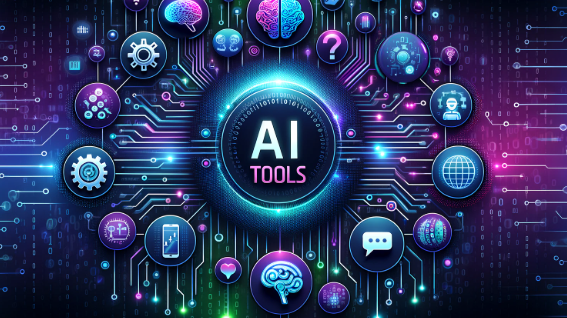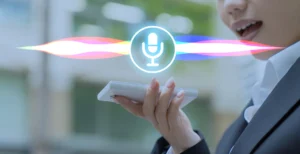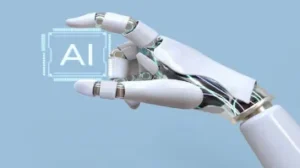Artificial intelligence (AI) is becoming a powerful partner in making life easier for everyone, especially seniors. As people age, they often experience challenges with memory, mobility, health, and communication. Current developments in AI solutions aim to address these challenges. For many seniors, talking to a device, reminding them to take their medications on time, or having a device respond to voice commands once seemed like science fiction. These tools are not only practical but also easy to use without any technical experience. They give seniors peace of mind, security, and more freedom to stay home and continue their daily lives.
Voice Assistants that Provide Practical Help
Voice assistants are one of the most popular AI tools for seniors today. Amazon’s Alexa, Google Assistant, and Apple’s Siri can do many things, such as answer questions, create reminders, play music, control lights, and even tell jokes. Voice assistants are a tremendous help for seniors who have difficulty typing or reading on small screens. With just a few voice commands, they can check the weather, read the news, or call family members. These devices can also help people feel less lonely and give them the opportunity to communicate and spend time with others. Voice assistants are convenient and simple to use in the home, making them useful in many ways.
Manage Medications with Ease
Remembering when to take your medications can be a challenge, especially if you have multiple prescriptions. Medication reminder apps and smart pillboxes are two examples of AI solutions that can help seniors remember when to take their medications. These reminders can be received via voice assistants, smartphones, or even the pillboxitself. Certain systems have the ability to determine whether a patient has taken their medication and notify caregivers in the event of a missed dose. This feature feature reduces the risk of seniors forgetting or overdosing on their medications, making them safer and more likely to stick to their treatment plan. Managing prescriptions is also easier and less stressful, especially for those with memory problems or unclear thinking.
AI Tools that Simplify Communication
Staying connected with loved ones is essential for mental health, and AI tools are helping seniors do just that. Smart devices can now send text messages, make video calls, and even convert voice commands into text. Apps that use AI can adjust text size, improve audio quality, or add captions to conversations for people with hearing or vision impairments. This makes it easier for seniors to stay in touch with family, friends, and caregivers without having to use complicated technology. Some apps also use AI to identify changes in tone or speech that could indicate emotional distress, so loved ones or experts can quickly find them.
Automating Homes for Comfort and Safety
AI is playing a major role in transforming ordinary homes into smart homes, and seniors are benefiting greatly from it too. Smart thermostats, lights, door locks, and security cameras are making everyday tasks safer and easier. For example, seniors can command voice assistants to turn off lights or adjust thermostats without having to get up. Smart doorbells make seniors safer by allowing them to see who is at the door before they open it. Motion sensors can detect movement and automatically turn on lights to prevent people from falling at night. These features reduce the physical burden on seniors and give them more freedom while ensuring that their home is safe and comfortable.
Cognitive AI Support Apps
As we age, memory and thinking skills gradually decline, and AI systems play a role in this. Some apps include memory games, puzzles, and interactive stories designed to keep your mind sharp. Some AI systems even enable personalized learning, adapting the learning content according to your responses. Digital AI tutors can talk to seniors, reminding them of things and keeping their minds active. These tools can be very useful for seniors who are just beginning to show signs of dementia or Alzheimer’s disease. They provide mild cognitive support to help people stay mentally healthy and perform daily tasks.
AI for Transportation and Mobility Assistance
Getting around may not be simple for seniors, but AI is making it easier. Today, car-sharing apps are more convenient and offer many features specifically for seniors. Some apps even support voice-activated booking. AI navigation systems can help seniors who are still behind the wheel by giving them clear directions and avoiding difficult routes. Smart walkers and wheelchairs with AI are being developed to help seniors with limited mobility. These devices can help people move around, avoid obstacles, and maintain their balance. These technologies can help people become more independent and move around more easily, avoiding travel problems that can be physically and mentally taxing.
Conclusion
AI tools are changing the lives of seniors, giving them more freedom, safety, and support. These technologies make daily tasks easier. Think of voice assistants, health monitors, smart homes, and emergency alarm systems. Seniors can now stay connected, stay healthy, and live at home longer. As AI continues to develop, it will play an increasingly important role in improving the lives of seniors. Growing older will no longer be a problem in the future but a phase of life that is supported by new, smart ideas. Seniors can live a more dignified and confident life and regain control over their daily lives by using these tools.
FAQs
1. Which AI tools are best suited for seniors?
Voice assistants like Alexa and Google Assistant, smartwatches that can monitor health, medication reminder apps, and smart home devices like thermostats and security systems are among the best AI tools.
2. Can seniors use AI if they are not so tech-savvy?
Indeed, the majority of AI products prioritize ease of use and comprehension. Many of them support voice commands, large buttons, and clear instructions so that even people who are not familiar with modern technology can use them.
3. Is AI safe for seniors?
Generally, AI tools for home use are very safe. However, it is important to choose a reliable product and adjust the privacy settings to ensure data security. Family members or caregivers can help set up the facility and monitor safety.
4. How can AI help with health issues?
AI can monitor your heart rate, warn you if you fall, remind you to take medication, and call for help if something goes wrong. These tools can help with health management and provide support for both long-term and short-term issues.
5. Can AI tools help people with poor memory?
Yes, AI technology can help address early symptoms of memory loss or dementia by reminding them of their poor memory, playing puzzles, and providing gentle support. These features help keep the brain active and reduce confusion.




